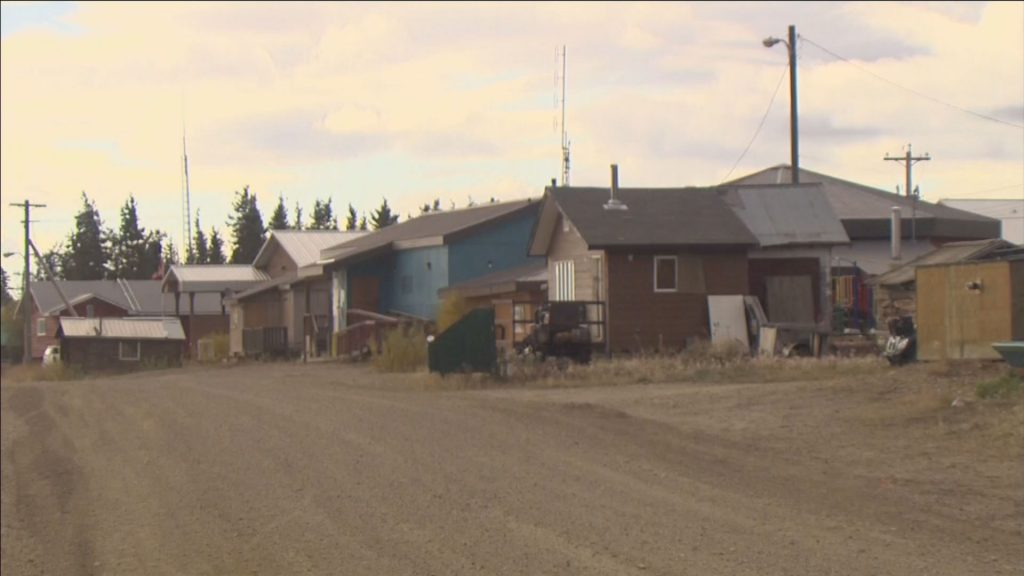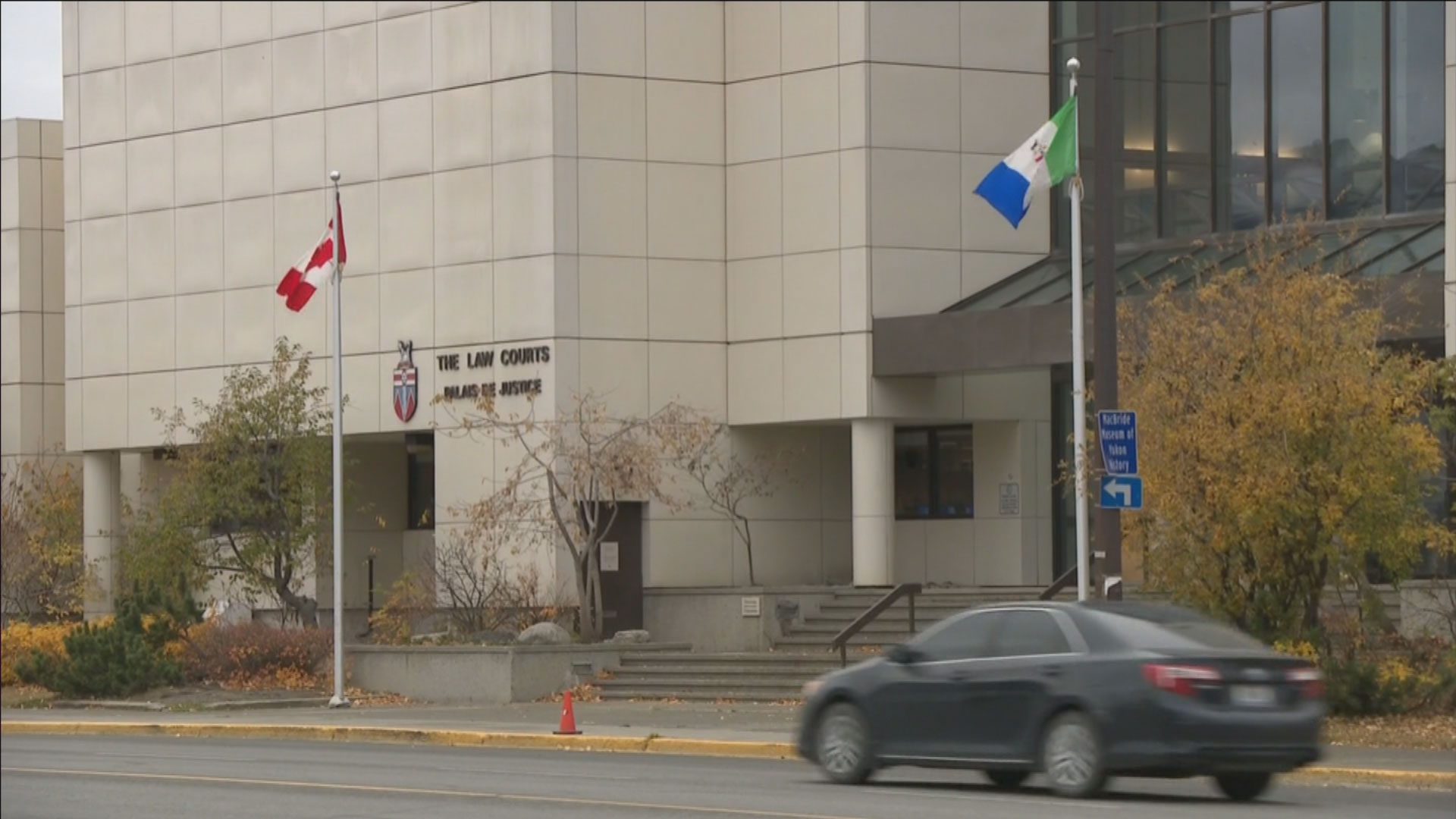
The man at the centre of a remote First Nation’s emergency safety order has been released on bail in Whitehorse.
On Wednesday, Chief Judge Michael Cozens issued a release order for Christopher Schafer, 45, a member of the Vuntut Gwitchin First Nation in Old Crow, Yukon.
He was set to be released back into his home community last weekend.
Schafer has a lengthy criminal record with numerous charges of sexual assault against women and girls.
His scheduled release sparked the Vuntut Gwitchin Government to invoke an emergency declaration order banning Schafer from entering settlement lands for 90 days while also prohibiting community members from interacting with Schafer.
A news release states anyone in violation of the order could be imprisoned for a term of six months.
Speaking with reporters on Oct. 11, Chief Dana Tizya-Tramm said, “This is nothing short of dangerous. Even if there is no physical violence that would come from this individual being launched into our community, people will be hurt and they already are.”
Schafer’s release is not being taken lightly in the small, fly-in community of 250 people about 800 km north of Whitehorse.
Tizya-Tramm said the court’s decision to release Schafer was made without consulting VGFN, and the First Nation found out about Schafer’s release through the local RCMP who received a fax just hours before his arrival.
Tizya-Tramm explained VGFN had previously been in contact with the court last summer about what supports would be needed if Schafer were to be reintegrated into the community, as well as what that reintegration might look like, such as enforcing Schafer to have a curfew, banning him from owning firearms and allowing him to live out on the land away from the community.
However, Tizya-Tramm said none of the community’s feedback was considered and Schafer was set to be released with no protections or safety plan in place.
“So how is it that no one can be asked any questions and our community’s wishes can be bulldozered over?… Someone just needed to reach out to us, all they had to do was ask, and we would be there in full force to assist,” he said.
But during a bail proceeding on Wednesday, Cozens reiterated that there were no conditions preventing Schafer from going to Old Crow, and that a Justice of the Peace was not presented with information surrounding the community’s feelings of Schafer’s release.
Crown attorney William McDiarmid said at a court appearance on Oct. 11 that the plan to release Schafer late last week to Old Crow was “ostensibly reasonable” at the time, though those plans had to be tweaked due to the emergency order.
Cozens said the backlash towards Schafer’s release was clouded by “misinformation.”
“I have a serious concern that this is bringing unfairly the administration of justice and the accused and it’s impacting negatively on the public’s confidence and administration of justice,” Cozens said.
He added Justices of the Peace are required to be independent of government, including First Nations governments.
“When the administration of justice is attacked, without full knowledge of the facts and without an understanding of judicial independence, it undermines all confidence,” he added.
Cozens said he might put out a press release to inform the public explaining the conditions surrounding why Schafer was to be released to Old Crow.
As part of his release order, Schafer must refrain from being outside of his apartment if he consumes alcohol and attends counselling, among other things.
After Wednesday’s court hearing, Tizya-Tramm told reporters Cozen’s remarks were shared by the First Nation, and that the issue at hand was that there was a lack of consultation.
“We heard in 2021 in August that what came out of that consultation at that time was that there were strict conditions put on this. What we experienced this time was not that,” he said.
“It was because our community had no influence, had no notification.”
Tizya-Tramm also noted the issue of the Justice of the Peace not being given any information regarding the community’s feelings on the matter is something he doesn’t understand.
“We have a very clear and present position on this and have been consistent for years…and a lot of it isn’t actually reflected in the court documents,” he said.
‘Families are retraumatized’
Tizya-Tramm said the small First Nation has only two RCMP officers, no doctors and no mental health professionals, and is unprepared to deal with offenders needing reintegration, prompting the emergency order.
The issue has garnered support from Chief Doris Bill of the Kwanlin Dün First Nation in Whitehorse who said the burden is often left to Yukon communities to deal with reintegrating offenders.
“Families are retraumatized because they have to see these individuals on a daily basis, and in some cases, watch these individuals who are breaking the law again,” she said.
Meanwhile, Tizya-Tramm noted he has been in contact with Schafer and his family, and has been trying to support him through the reintegration process.
VGFN is now requesting a public inquiry into the incident, as well as demanding a public apology and wellness supports for the community.
Tizya-Tramm has since sent a letter to federal Justice Minister David Lametti, Yukon Justice Minister Tracy-Anne McPhee and Cozens detailing the how the incident has impacted community members.
Spokespeople for McPhee and Lametti acknowledged they had received the letter and would be responding.
APTN News reached out to Schafer’s lawyer Norah Mooney but did not hear back before this story was published.










